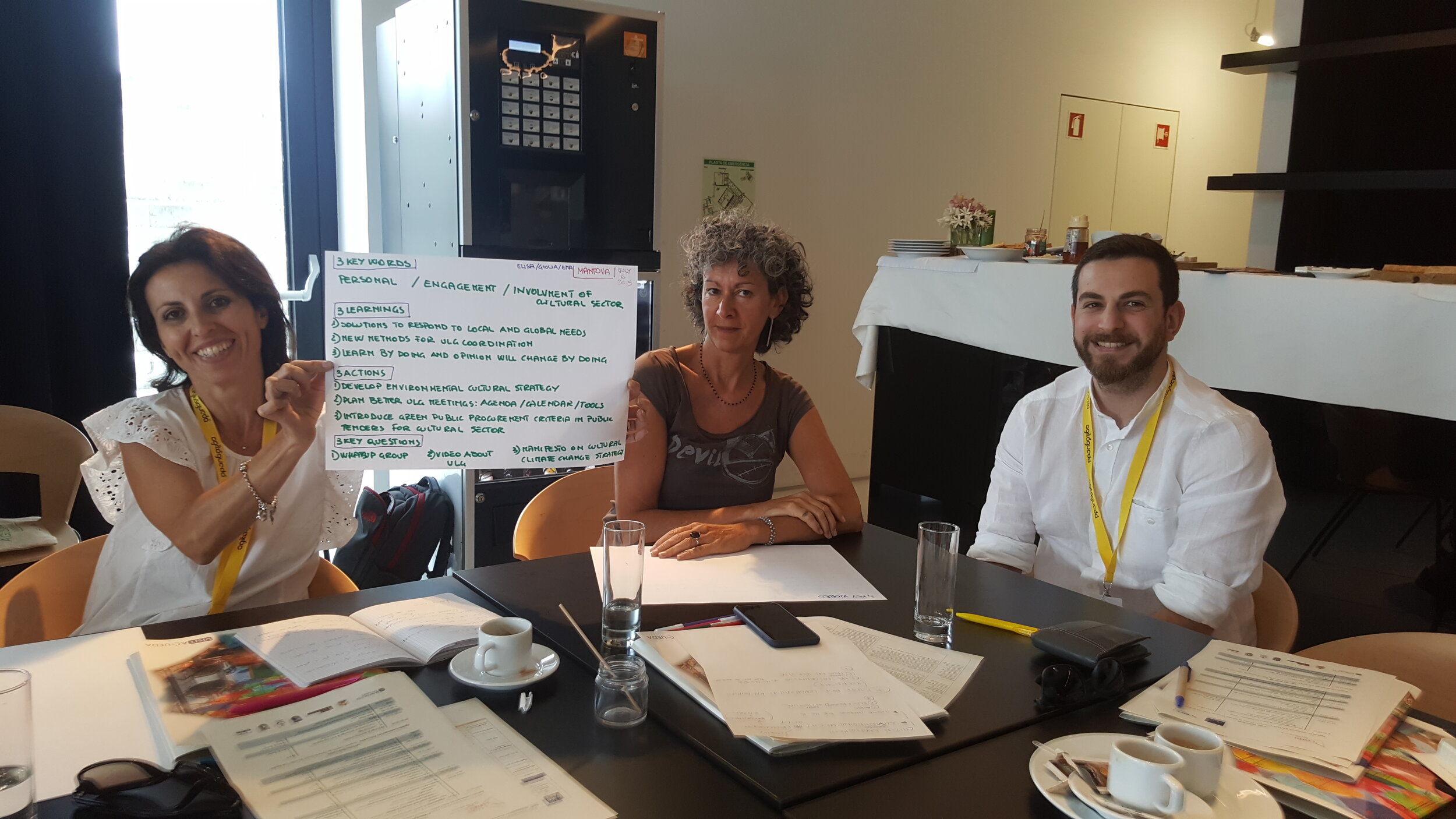
Policy: City policy frames sector action
City policy can be an important driver for sector action on climate.
The sector may even play an active role in city climate change strategy.
In the early days of C-Change representatives from the partner cities learnt in particular about two key policy measures:
Manchester’s climate change strategy – from a call to action on the city’s first strategy 2010-2020 which acted as a catalyst for a sector response to MAST now playing an active role in city climate change strategy as a member of Manchester Climate Change Partnership.
Arts Council England’s environmental programme, running since 2012, which both requires regularly-funded organisations to report on their environmental impacts and have an environmental policy and action plan and provides a range of accompanying sector guidance, tools, support, events and inspiration.
For most partner cities, C-Change was the first time different city departments came together on culture and climate.
For example the Environment Department, Culture Department and EU Projects and Funding-raising Office in Mantova, the culture and climate change departments in Gelsenkirchen. This has brought many interesting results on the policy level.
In Mantova for example, culture is now included in the city’s Sustainable Energy Action Plan. The city’s Plastic-Free commitment applies to cultural events and the city has a green procurement policy for cultural events and services.
In Manchester, where culture is already in city climate change strategy, the council is now working to align its Strategic Cultural Investment and Grants programme (approx. £4m p.a.) with city climate change strategy.
In Gelsenkirchen, the city is looking at how to formally involve the culture sector in developing its new climate change strategy 2030-50.
In Wrocław the city’s new Cultural Council, elected in 2020, has been tasked with developing an integrated cultural strategy. C-Change has helped to highlight the importance of making climate and environmental action and engagement a part of this strategy.

“C-Change has been a central part of Mantova cultural strategy over the last few years. We will continue what C-Change has started, and build on its legacy through a range of spin-off projects on both the local and the national level, including a new project to transfer the C-Change model to six other Italian cities.”
Emanuele Salmin, Fundraising and EU Projects Office, Municipality of Mantova
At the start of C-Change, the expectation was that mainly culture and environment departments would be involved on the city side.
In Šibenik and Mantova the ‘money people’ were involved too and this had all kinds of benefits, from sector fund-raising in Mantova, to the way in which Šibenik’s Department of Economy, Entrepreneurship and Development put its project management skills to use for arts and culture in the city and started more actively seeking out funding for environmental projects.

“The Department of Economy, Entrepreneurship and Development was used to dealing with infrastructure projects with much bigger budgets than C-Change. We were more funding and project-driven and not well-versed on culture and climate. Being involved in C-Change increased our own awareness of climate change and why it was so important to act. We started to make small changes in our personal lives. We saw what could be achieved by combining our project management skills with the creativity and reach of the arts and culture. Indeed C-Change brought out our own creativity. In the end, we have achieved more than we thought possible.”
Nikolina Gracin, Department of Economy, Entrepreneurship and Development, City of Šibenik
Watch: C-Change focusing on Policy
What we’ve learnt
Bringing city and sector, culture and climate together is not always easy.
Not least as it requires getting out of your comfort zone, but it can have so many benefits: building trust in the others’ roles and skillsets, unlocking city official’s inner creativity and informing integrated policy-making. It can also help both sides realise how much the arts and culture can contribute to climate action and engagement.
Whoever leads on the city side, the buy-in and support of those leading on culture in a city is essential.
If it only comes from the environmental side the impact will be more limited on a policy level.
A more 'traditional' city policy or strategy approach on climate e.g. reducing emissions from transport, energy etc. is not necessarily the best fit for arts and culture.
As there are many areas the sector cannot control or can only control in a limited way - and it may risk missing what is so important about the sector i.e. its potential to demonstrate and mobilise action.
‘Policy driving action / action driving policy’.
Even if there is a lack of policy drivers and city support for the sector on climate action, if the sector is mobilised on climate action and has a collective voice there is potential for a bottom-up approach to drive policy responses.

Culture and climate, city and sector coming together for the first time in Gelsenkirchen, July 2018, Photo: Gerd Kaemper

Elisa Parisi, Department of Environment Giulia Pecchini, Culture and Tourism Department, Emanuele Salmin, Fundraising and EU Projects Office at a C-Change meeting, Águeda July 2019

Gelsenkirchen’s C-Change local group members and Climate Action Manager (Photo @ Serkan Akin)
Explore the C-Change Cities








